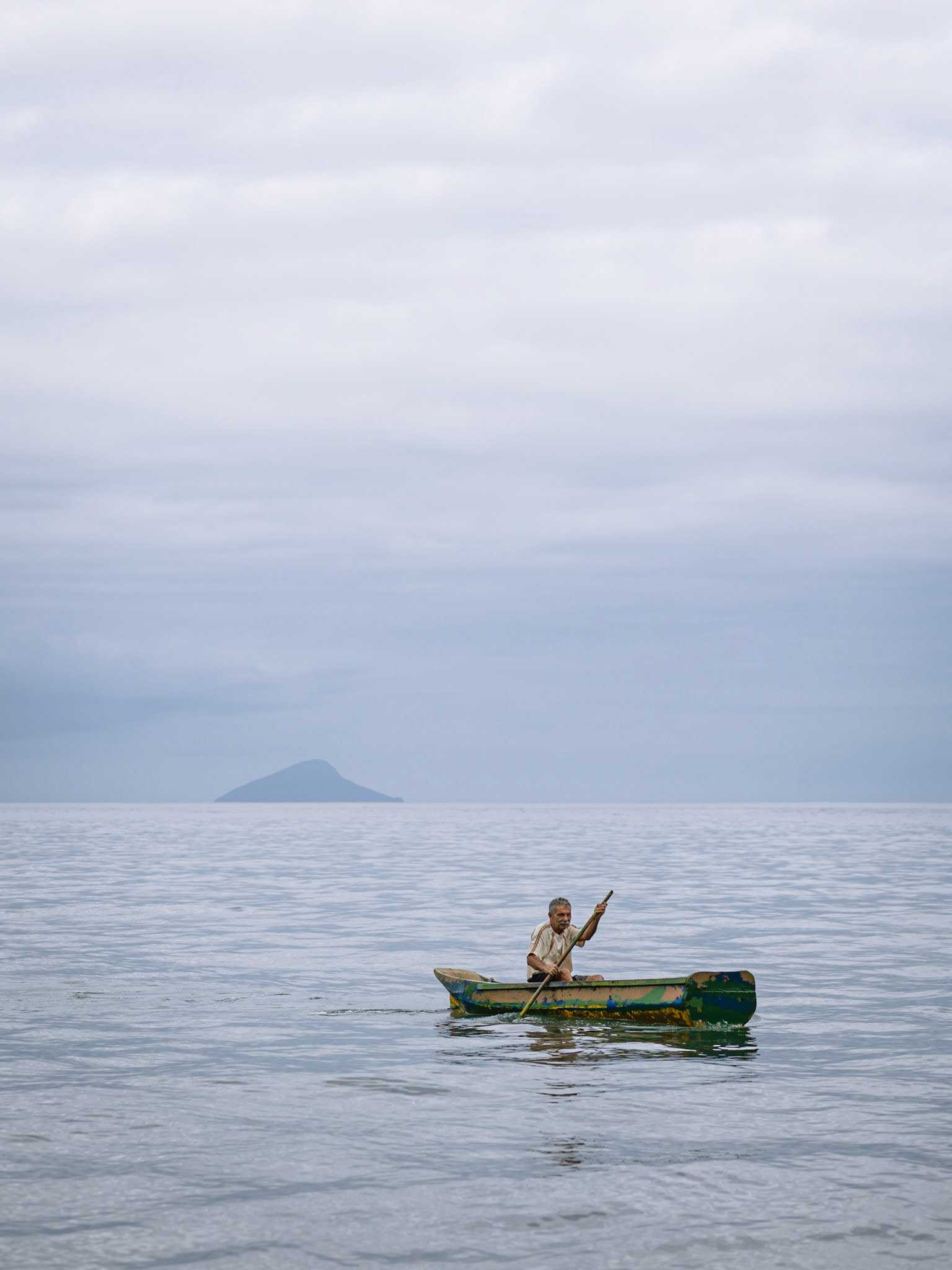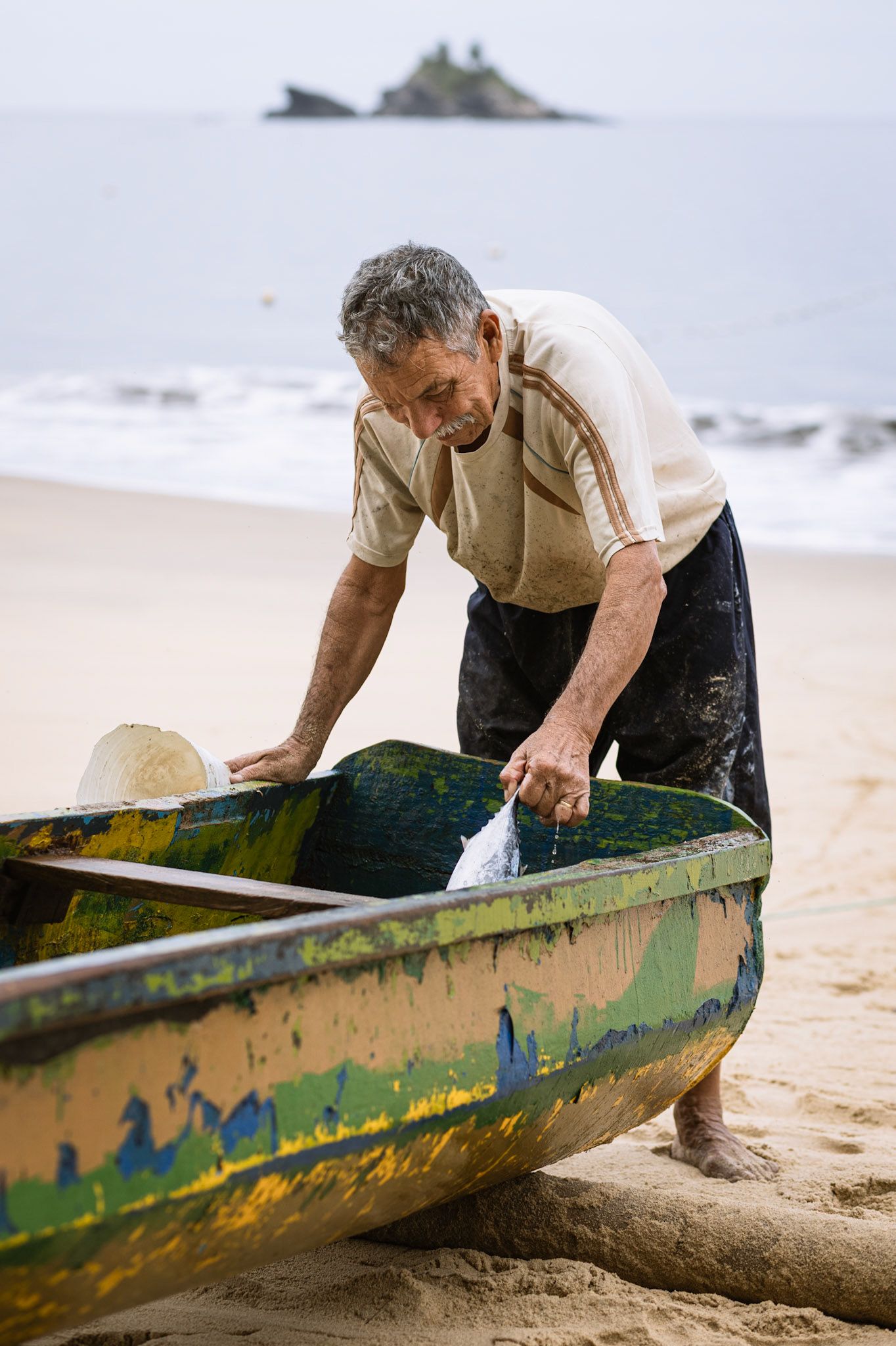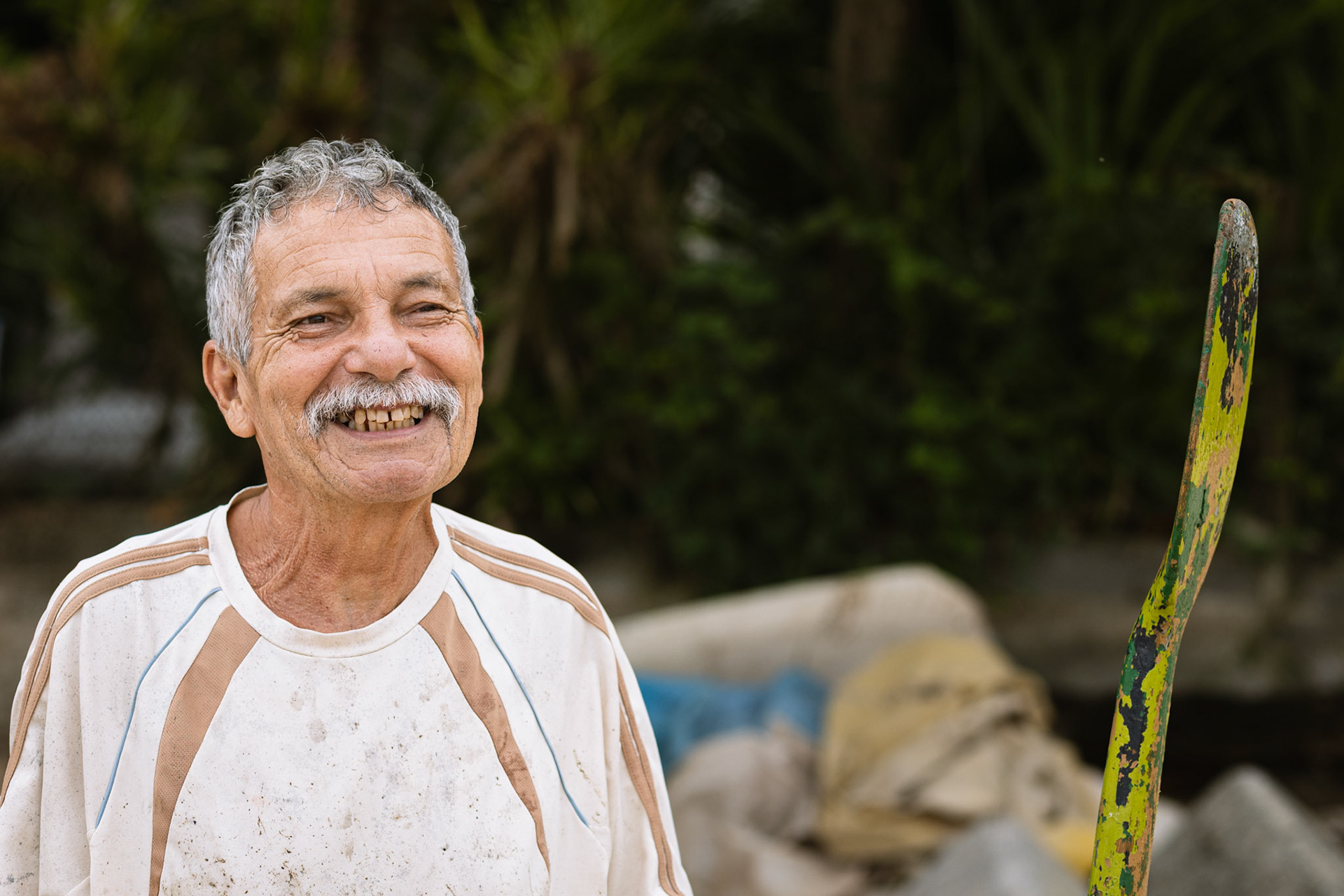Where the emerald Atlantic Ocean shapes the forested hills of Brazil’s Mata Atlântica, coastal families still launch hand-carved canoes at first light. Their hands repeat gestures learned from ancestors who fished these bays generations ago. Caiçaras follows those lives: an elder who prays over lost friends, a lone fisherman who stitched his storm-torn canoe into “two backs,” and a trained biologist who seeds mussel ropes instead of casting lines. One shoreline, three generations, the same pulse of tide and tradition—an unfinished conversation.
Toni
His net stretches like memory across the sand. His canoes, carved from entire tree trunks, are proudly lined up at the beach. His saint, Nossa Senhora Aparecida, watches over his faith and the sorrow over lost ones. He is the keeper of legacy, and all hopes are on his son.
His net stretches like memory across the sand. His canoes, carved from entire tree trunks, are proudly lined up at the beach. His saint, Nossa Senhora Aparecida, watches over his faith and the sorrow over lost ones. He is the keeper of legacy, and all hopes are on his son.



Sebastião
A canoe with two backs—shattered by a landslide, stitched together with resilience. He paddles in solitude. The day’s small catch surfaces, and his smile bears the pride of generations.
A canoe with two backs—shattered by a landslide, stitched together with resilience. He paddles in solitude. The day’s small catch surfaces, and his smile bears the pride of generations.



Márcio
Salty ropes surface, revealing their quiet secret: rows of emerald mussels—tomorrow’s harvest. A biologist by training, Márcio tests new water against the catch of the past.
Salty ropes surface, revealing their quiet secret: rows of emerald mussels—tomorrow’s harvest. A biologist by training, Márcio tests new water against the catch of the past.


